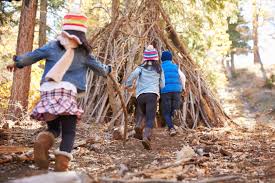Honoring the memory of loved ones who have passed is a deeply personal journey that varies greatly among individuals and cultures. This article explores several unique ways to commemorate those who have died, focusing on traditional methods such as headstones and mausoleums, alongside alternative approaches that celebrate life and legacy.
Headstones: A Lasting Tribute
Headstones serve as traditional markers of remembrance, embodying the essence of a person’s life and legacy. They provide a tangible connection to those we have lost, offering a space for reflection and remembrance. When selecting a headstone, families can choose from various materials, designs, and inscriptions that reflect the personality and values of the deceased.
Customization Options
Personalization is key when it comes to headstones. Families can opt for engraved quotes, images, or symbols that represent the individual’s passions, interests, or life achievements. Some may choose to incorporate elements like nature scenes, religious symbols, or hobbies into the design, making the headstone not just a marker, but a celebration of the person’s unique life.
Environmental Considerations
In recent years, there has been a shift towards more eco-friendly options. Biodegradable headstones made from natural materials are gaining popularity. These stones blend seamlessly into the environment, reflecting a commitment to sustainability while honoring the memory of the deceased.
Mausoleum: An Elegant Resting Place
Mausoleums offer a more elaborate alternative to traditional burial methods. These structures serve as private, enclosed spaces for families to gather and remember their loved ones. Often situated in serene environments, mausoleums provide a tranquil setting for reflection and remembrance.
Benefits of Mausoleums
One of the primary advantages of a mausoleum is its protection from the elements. Unlike traditional graves, which may be affected by weather conditions, mausoleums offer a stable and secure resting place. They can also accommodate multiple family members, allowing for a shared space of remembrance that can be visited by generations to come.
Customization and Design
Mausoleums can be designed to reflect the family’s heritage and values. Families can choose from a variety of architectural styles, including classic, modern, or culturally significant designs. The interior can be adorned with personal mementos, photographs, and memorabilia that tell the story of the individual and their family, creating a meaningful space for reflection.
Memorial Services: Celebrating Life
Memorial services are an opportunity to honor and celebrate the life of the deceased. Unlike traditional funerals, memorial services focus on remembrance rather than mourning. They can take place anywhere from a family home to a favorite park, allowing for a personalized and intimate gathering.
Creative Themes and Activities
Incorporating themes that reflect the deceased’s interests can make memorial services especially meaningful. For example, a nature lover might have a memorial service in a botanical garden, while an avid traveler might be honored with a service that features photos and stories from their adventures. Activities such as sharing favorite memories, playing meaningful music, or engaging in creative projects like a memory quilt can foster connection among attendees.
Memorial Scholarships and Charitable Donations
Establishing a memorial scholarship or making charitable donations in the name of the deceased can create a lasting legacy. These acts of kindness not only honor the individual’s memory but also contribute positively to the community.
Creating Impact Through Scholarships
Memorial scholarships can be established to support students pursuing education in a field that reflects the values or passions of the deceased. This not only keeps their memory alive but also inspires future generations to achieve their goals.
Charitable Giving
Donating to a charity that was important to the deceased can provide comfort to family members while making a significant impact in the community. Whether it’s funding research for a specific disease, supporting environmental conservation, or aiding local shelters, these donations keep the individual’s spirit alive through meaningful contributions.
Memory Boxes and Keepsakes
Creating a memory box filled with mementos, photographs, and letters can be a therapeutic way to honor a loved one. This box serves as a personal tribute that family members can revisit, allowing them to reflect on their cherished memories.
Family Involvement
Encouraging family members to contribute to the memory box can foster connection and healing. Each person can add items that remind them of the deceased, creating a collective tribute that represents the love and bond shared with the individual.
Conclusion
Honoring the memory of those who have passed is a profound way to celebrate their lives and legacies. Whether through traditional methods such as headstones and mausoleums or unique approaches like memorial services, scholarships, and memory boxes, the goal is to create a meaningful tribute that reflects the essence of the individual. These acts of remembrance not only keep the memory alive but also foster healing and connection among those left behind. By embracing various ways to honor our loved ones, we can ensure that their legacies endure through generations.











